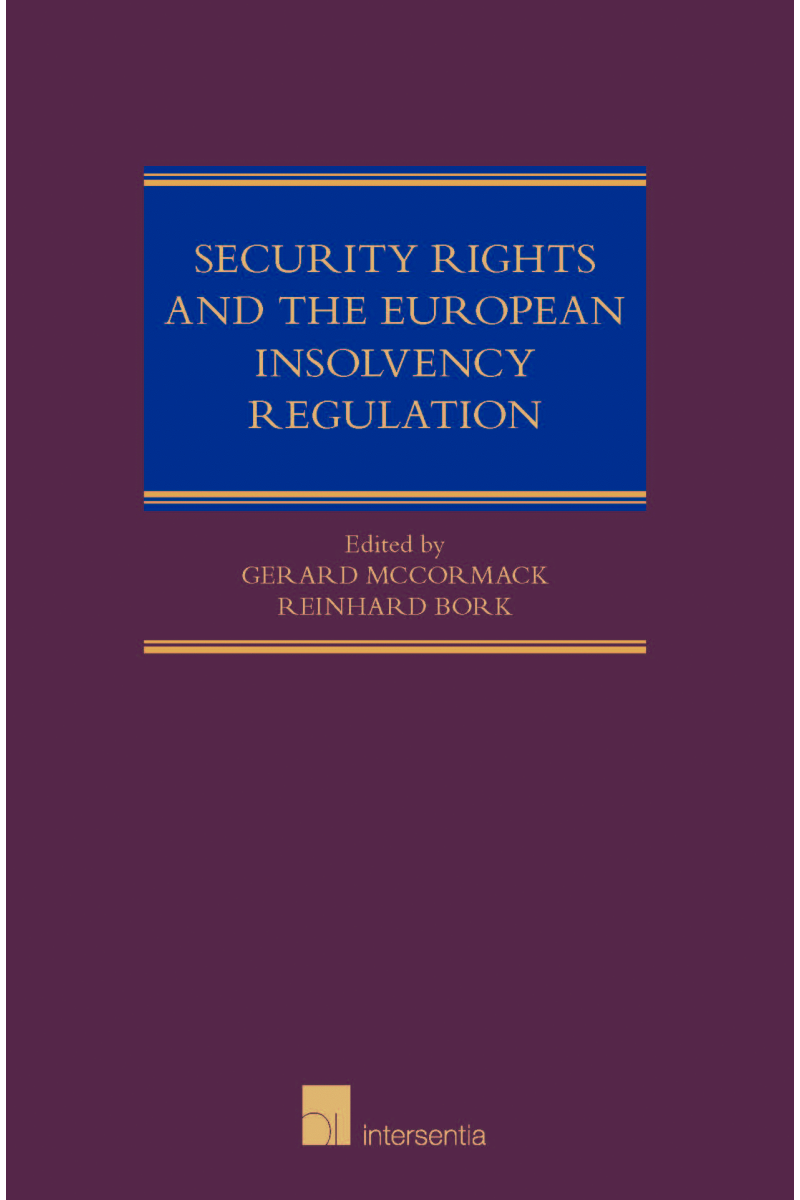 maestro
mastercard
visa
maestro
mastercard
visa

Security Rights and the European Insolvency Regulation

Security rights are of fundamental importance to the granting of credit. They are generally considered to increase the availability and lower the cost of credit but there appear to be divergent views across Europe and elsewhere on the extent to which it should be possible to create security rights over assets.
Moreover, laws in many countries – avoidance laws – strike at advantage gaining by creditors in the period immediately before formal insolvency proceedings are instituted. It is seen as potentially unfair to other creditors who may be forced into taking enforcement proceedings against the debtor and this may precipitate the premature liquidation of the debtor with an overall loss of economic value.
The book will assess the conception of security rights according to the different European legal traditions. It will also evaluate the appropriateness of the protection given to security rights in light of:
- developments in those European legal traditions;
- the objective of the Insolvency Regulation to facilitate the more effective administration of cross-border insolvency cases;
- the need for security in the context of the financial crisis;
- the basic principles of ensuring fairness between creditors;
- forestalling premature liquidation; and
- reinforcing the collective nature of the insolvency process.
The growth strategy put forward by the European Commission, Europe 2020, is designed to achieve economy recovery and sustainable growth, targeting as primary goals a higher investment rate and the preservation of employment. The rescue of troubled enterprises is at the core of this strategy and the book plots the alignment between this strategy and the evolution of the Insolvency Regulation.
The objective is to facilitate a situation where economic and social systems are adaptable, resilient and fair; where economic activity is sustainable; and where human values are respected.
About the book
‘This very broad comparative study includes analysis and evaluation of the laws on secured rights demonstrating rather divergent views across the EU regarding the extent to which it should be possible to create security rights over assets. It presents a broad array of options and solutions which might spark further thoughts and innovations. It goes deeply into the meaning of Article 5 of the EU Insolvency Regulation 1346/2000, now the similar Article 8 Recast. It analyses also the many differences countries have when defining a “right in rem” and its effects. The full study may assist Member States in enhancing their domestic laws or possible law reform. It should be read by representatives of the banking industry and economists, who often confuse insolvency with pure asset liquidation. In the academic world it will allow for discussion and circulation of ideas.
Bob Wessels in CMLR 2018 977
With contributions from:
Reinhard Bork (Hamburg), Marta Carballo (Santiago de Compostela), Laura Carballo Piñeiro (Santiago de Compostela), Renato Mangano (Palermo), Gerard McCormack (Leeds), and Tibor Tajti (Budapest).
| Type of product | Book |
|---|---|
| Format | Hardback |
| EAN / ISSN | 9781780683171 / 9781780684987 |
| Weight | 1365 g |
| Status | Available |
| Number of pages | xlvi + 700 p. |
| Access to exercice | No |
| Publisher | Larcier |
| Language | English |
| Publication Date | Apr 12, 2017 |
| Available on Strada Belgique | No |
| Available on Strada Europe | No |
| Available on Strada Luxembourg | No |
Downloads
- Table of Contents
- PART I. COMPARATIVE ANALYSIS
- Introduction
- Chapter 1. Security Rights under Article 5 of the Insolvency Regulation and Article 8 of the ‘Recast’
- Chapter 2. Transactional Avoidance and the Insolvency Regulation
- Chapter 3. Security Rights, National Laws and Possible Reforms
- Chapter 4. Transactional Avoidance, National Laws and Possible Reforms
- PART II. NATIONAL REPORTS
- Chapter 5. Germanic Legal System – Germany and Austria
- Chapter 6. Common Law System – England and the Republic of Ireland
- Chapter 7. Roman Legal System – Spain, Italy and France
- Chapter 8. Central and Eastern European Systems – Hungary, Poland and Lithuania